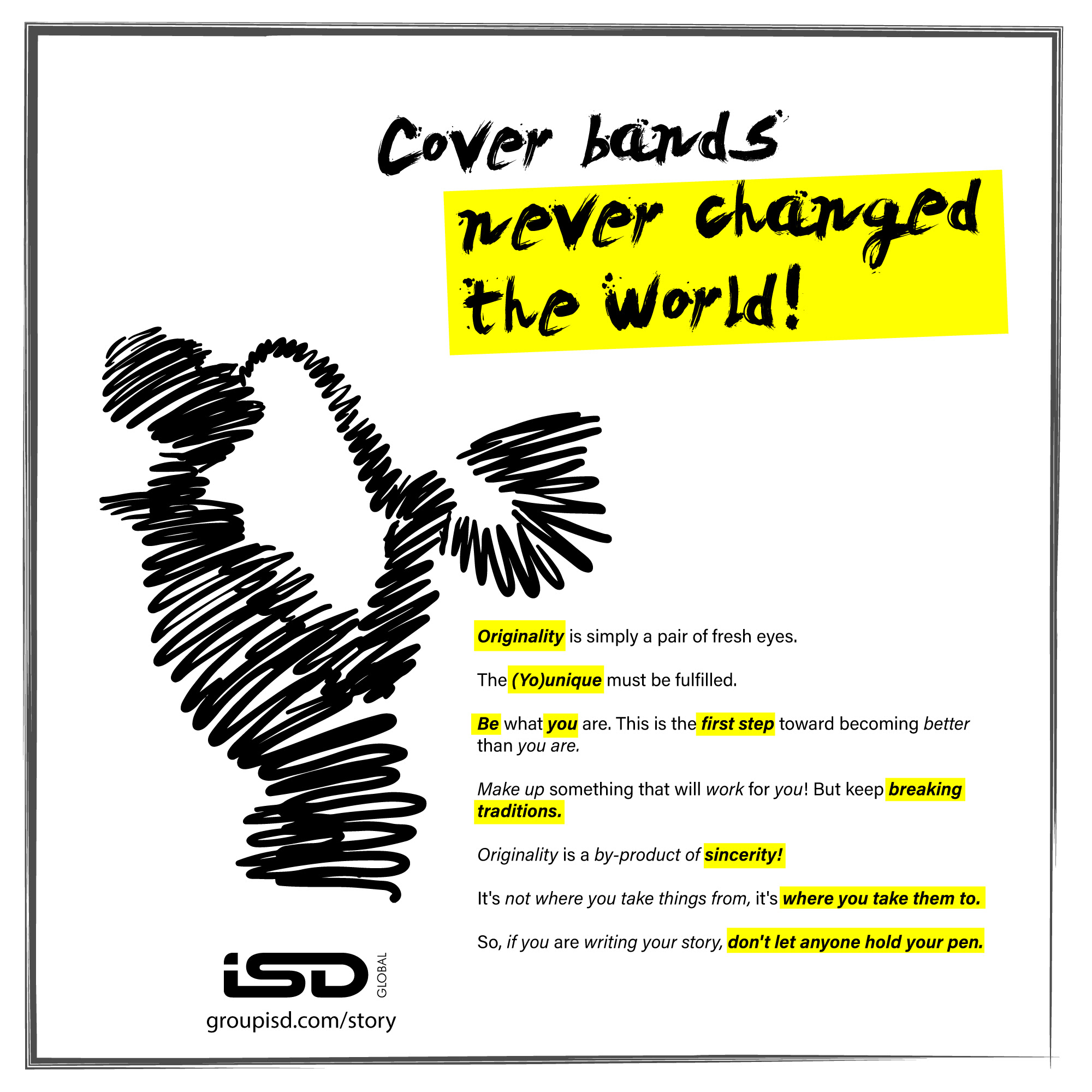Introspect. And the Archaeology of Self will reveal that your scars are not your story’s punctuation marks. They’re the commas in a sentence that’s still being written.
Every wound whispers: I own you. And every healing whispers back louder: Not on my watch.
The human condition has this funny way of playing trick-or-treat with us. One minute you are basking in the glow of a promotion, a love confession, or your startup’s first investor cheque… next minute you are punched in the gut by betrayal, rejection, redundancy, or a WhatsApp “seen” without reply.
We confuse the hurt for the whole. We stitch our identity to the fracture and forget the rest of the fabric.
But here’s the raw truth: There’s always more to you than what hurt you.
What if healing isn’t about forgetting what hurt you, but remembering who you were before the hurt tried to define you? What if your story gets better from here? Because, your trauma is not your personality. Your healing is not your brand. Your wholeness is not conditional on your pain being productive.
Let’s reconcile to one fact that your hurt wouldn’t want you to know. You are NOT a walking wound. You are not your worst day, your darkest moment, or your most painful chapter. You are not the person who left, the opportunity that slipped away, or the words that cut deep. You are not even your most heroic comeback story.
You are something far more extraordinary—you are a universe in motion, constantly creating and recreating yourself.

The culture, as it would have it, told you a story of the crack, but never about the light that got in.
Maybe it was a betrayal that left a permanent chill in your bones. A failure that echoes in every quiet moment. A word, a look, a rejection that became the ghost living in your hallway, whispering the same old lies: You are not enough. You are what happened to you.
We are not running away from the truth. Your hurt is real. It is valid. It deserves a seat at the table. But here is the revolutionary, earth-shattering, needle-moving truth: it does not get to order for everyone else.
This isn’t just fluffy self-help. This is the raw, gritty narrative of the human spirit, from Mumbai to Manhattan.
Pushed from a moving train by thieves in 2011, she lost her leg. The world saw a victim. She saw a mountaineer. In 2013, she became the world’s first female amputee to climb Mount Everest. The hurt was a horrific fact. It was not her fate. That is Arunima Sinha for you.
A divorced, unemployed, clinically depressed single mother living on state benefits. Society’s definition? A statistic. Her own definition? A writer. She gave the world Harry Potter not in spite of her pain, but by channeling its echoes into a story about love, loss, and the boy who lived. That is your global phenomenon: J K Rowling.
Oprah Winfrey, who endured childhood abuse, didn’t let that become her headline — she rewrote it into power, influence, and impact.
In Indian mythology, the wounded Karna was constantly denied legitimacy, but his pain sharpened him into one of the most formidable warriors of the Mahabharata.
Think of Amitabh Bachchan in the 90s. Bankrupt. Written off. Newspapers calling him a relic. Hurt in ways that would’ve flattened most.
But the man didn’t stop at “failed producer.” He went back, rebuilt, reinvented. Kaun Banega Crorepati wasn’t just a game show. It was his resurrection.
AR Rahman turned the grief of losing his father as a child into a lifelong devotion to music that reshaped the cultural landscape.
Steve Jobs? Kicked out of the company he founded. The ultimate professional heartbreak. Instead of being defined by exile, he built Pixar, and then returned to Apple to redefine the world.
The person who grew up with the searing label of “not good at math” and now runs a successful business, their Excel sheets a quiet middle finger to that old shame. The one who loved and lost so deeply they thought they’d never breathe again, but now uses that capacity for love to nurture profound friendships.
The pattern is universal. The hurt is the setting, not the protagonist. The protagonist is you—the you that existed before the hurt, and the you that is being forged, diamond-like, under immense pressure, right now.
What hurt you is part of you. But it’s not all of you.
And since we live in the Republic of Not Enough and most things in life are centred around ROI, here’s some food for thought: when we over-identify with hurt, we end up smuggling yesterday’s grief into tomorrow’s opportunity. We risk hiding our brilliance behind our bruises, just in case life hits again. And we end up pretending cynicism is maturity.
But healing does not mean forgetting. It means re-anchoring. Pain is only a place you visit. So, please don’t go house-hunting there.
This matters because right now, someone you know( probably you?) is stuck on repeat, playing their greatest hurt like a broken record. Because leaders who confuse wounds for identities end up building organizations from insecurity. Because you can’t inspire, build, or love fully if you’ve given your hurt the keys to your soul.
So, in conclusion, don’t audition for victimhood. The world loves a survivor’s story, not a martyr’s rerun. Rename the scar. Don’t call it failure — call it curriculum.
Stop letting trauma hold the pen. Hand it the highlighter, maybe. But the pen? That’s yours.
